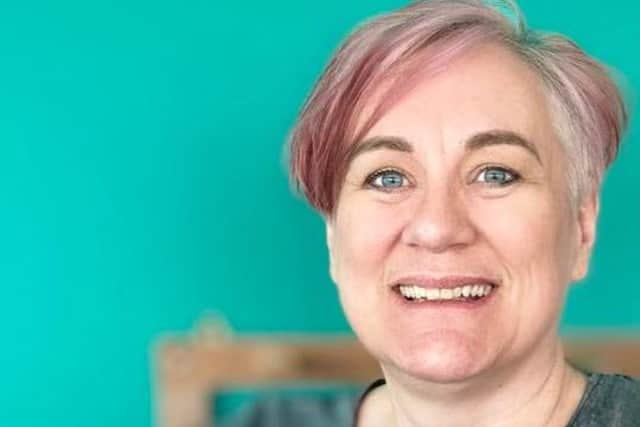A circular economy of goodwill unlocks new opportunities for growth - Mairi Breslin


Just this month, Coorie Creative’s weaving studio moved to a new home in Stirling’s Thistle Centre, with a fresh focus on our retail offering – a new revenue stream that sits alongside our core workshops. Prior to the pandemic, tourism was a significant contributor to our operation, with classes for people to make their own tartan and other traditional Scottish items. However, with lockdown throwing us a curveball in that respect, we quickly turned our focus towards the retail arm.
It has taken nearly three years to find the perfect new home for the weaving studio – which is now the largest weaving facility and shop in the UK - and it is the new retail offering that made this possible, with our new site located within a shopping centre. After taking part in the Retail Academy and Ambitions programmes facilitated by Social Investment Scotland (SIS), my eyes were opened to the world of retail, and how an enterprise previously focused on events could diversify and survive the Covid crisis. Learning from peers with larger, well-established mission-driven brands was nothing short of inspirational.
Advertisement
Hide AdAdvertisement
Hide AdWe are now selling kits and equipment for weavers, with a range of products that can be shipped anywhere in the world, with all the tools and instructions needed for people to make their own woven items from their own homes. Our new location is also a fully stocked shop, thanks to funding from SIS, which has enabled us to purchase the quantities required to fill the store upfront.
All of the effort we are putting behind the diversification of Coorie Creative ultimately means that we can support more people in our community, particularly the trauma survivors we regularly work with who can often face social isolation. The studio offers a welcoming, safe space for people to come along and get creative, providing a forum that allows them to participate in an activity that doesn’t require any specific skills or prior experience. Compared to knitting or crochet, for instance, results from weaving projects can be seen fairly quickly, which has many benefits from a mental health and wellbeing perspective.
We also ask our workshop participants to create items that other people will benefit from – thinking of our impact in an almost circular manner. For example, if the neonatal unit was looking for hats for newborn or premature babies, we would ask those attending our group sessions to respond to the charity’s call for help. We call it our circular economy of goodwill, which gives participants a sense of purpose and allows them to give back to other people in need.
The retail diversification has ultimately unlocked an entirely new opportunity for the growth of Coorie Creative, and from speaking to other social enterprise leaders and entrepreneurs I’ve connected with through SIS, it is clear that the drive to expand and change the traditional way of working will extend beyond the pandemic. Of course, it is important to find your niche, which I believe we have done with the new weaving studio, but being open to change and development opportunities is ultimately what will fuel growth. And in the social enterprise landscape, growth translates to greater impact and the chance to do more for the wider causes that we exist to support.
Mairi Breslin, director and founder of Coorie Creative CIC
Comments
Want to join the conversation? Please or to comment on this article.